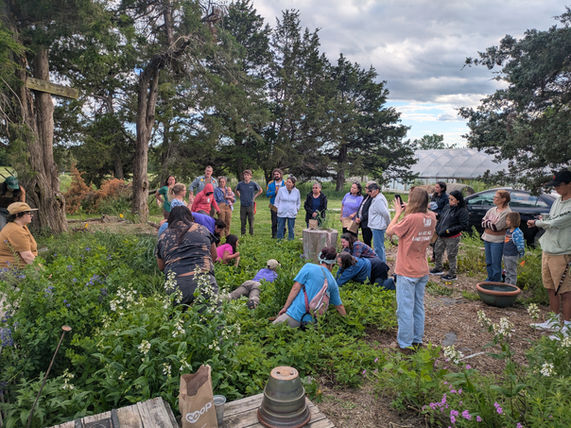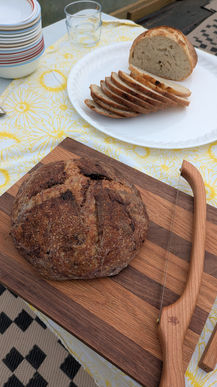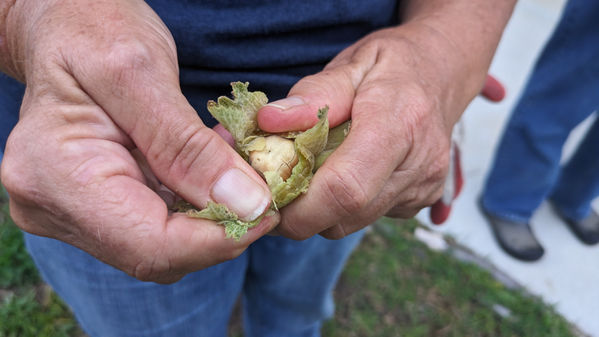Nourishing Communities

Native Foods for Adapting Farms
Native Lands Restoration Collaborative is partnering with farmers and other growers across Douglas County, Kansas, to plant native and perennial food crops that can thrive even in harsh growing conditions.

Our Impact
Our Impact
Being Adaptable
Many farmers in Douglas County struggle with lost crops and loss of income during times of extended drought and flood. Growers of all kinds are concerned about shifting growing seasons due to climate change, as well as reduced crop yield related to water use, soil loss, reduced pollination, and more. Creating a sustainable local food system is key as our community works to mitigate the effects of climate change — and native species play an invaluable role in teaching us how to adapt.
Through the "Nourishing Communities" project, Native Lands Restoration Collaborative is demonstrating the potential for native and perennial food crops to provide a safety net for farms, with the goal of producing crops to take to market even during harsh growing seasons.

Benefits of Native Foods to Growers
drought and flood resistant
naturally pest resistant
host and provide nectar and pollen to pollinators
improve water quality
stabilize and
regenerate soil
taste delicious
Pilot Plantings to Shape Our Food's Future
Alongside local producers and the Douglas County farming community, Native Lands Restoration Collaborative is planting almost a dozen demonstration plots or "pilot plantings" of native and perennial food crops. One key consideration is that these crops take longer to establish than today’s most common food crops — resilient root systems don't grow overnight! To support farms and other local growers in expeditiously adapting to our changing climate, these will serve as educational outdoor “labs” that we can all learn from.
Together, we will demonstrate how a diverse, long-term food production strategy, utilizing native species and other perennial food crops, not only benefits pollinators, soil health, and water quality, but sustains livelihoods. The results of this collaboration has the potential to shape future farming practices in Douglas County by providing real-world examples of sustainable farming to our community leaders, as supportive policy reform related to sustainable farming is integrated into open space planning, climate change preparedness, and beyond.
Gathering to Grow Together
Sustainable food systems don't stop at planting. Through the "Nourishing Communities" project, Native Lands Restoration Collaborative provides hands-on, educational workshops for local farmers and land stewards on planning, planting, caring for, and sustainable harvest of edible native species and perennial foods. Through these educational opportunities, we also share knowledge on sustainable land stewardship that protects soil, water, and wildlife.
With each gathering our community of growers strengthens! These workshops and related community meetings also serve to build community between local farms and community gardens that complements the relationships built through the Common Ground and Farmers Market networks. As we learn to adapt our growing spaces, we can use all the support we can get.
Reducing Risk
Like farming communities worldwide, high cost and risk prevent Douglas County farmers from implementing sustainable and regenerative practices. With the support of a Douglas County Natural and Cultural Heritage Grant, we are field-testing new strategies to lower the barrier of entry and demonstrate best practices for cultivating native and perennial food crops. At the same time, we are building a supportive network of growers who are sharing knowledge to reduce individual risk and leading a transformation toward a sustainable and adaptable local food system.
Get Involved
The beginning stage of this project is dedicated to developing community between growers. We're looking forward to inviting the braoder community to engage in this project soon.
If you're interested in partnering on this project, please get in touch!





.png)





.png)
























